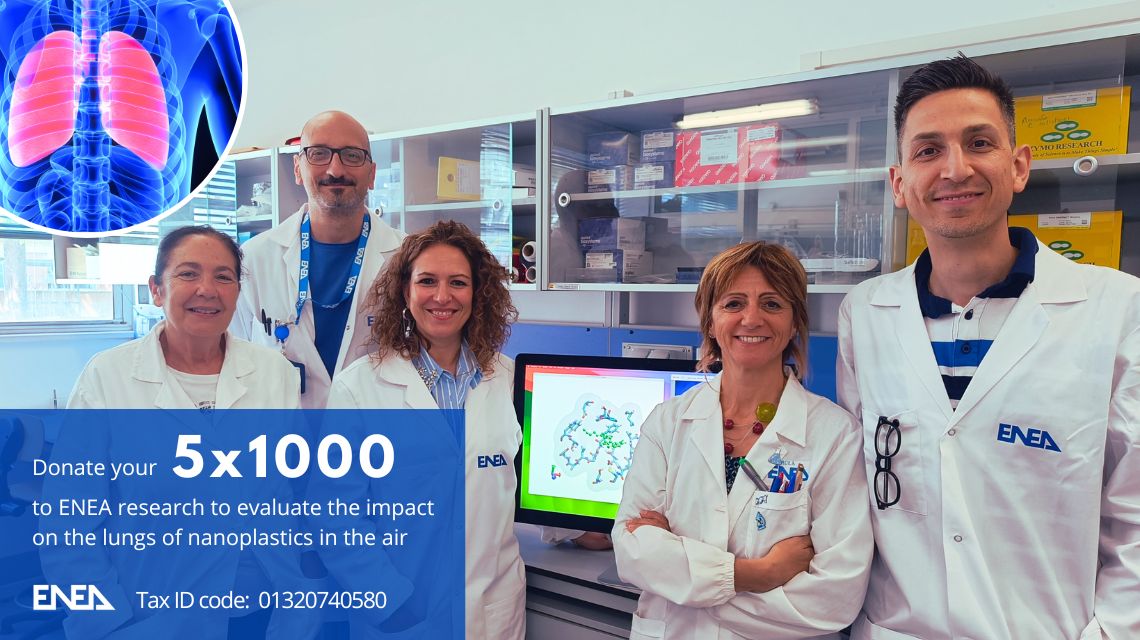Italian National Agency for New Technologies, Energy and Sustainable Economic Development

Income tax return: Health, a 5x1000 tax donation to ENEA for research on nanoplastics in human lungs
Assessing the human health risks posed by nanoplastics floating in the air and their impact on the lungs is the objective of “PlasticBreath”, an innovative scientific research project conducted by researchers at the ENEA Health and the Environment Laboratory, which gathers key information to develop and implement sustainable air quality policies. Taxpayers may support the ENEA project by indicating the tax code 01320740580 as the recipient of the 5x1000 donation in this year’s tax return.
“The incidence of respiratory diseases is rapidly rising and is becoming an increasingly serious public health concern globally. Recent studies have shown that atmospheric particulate matter (PM) is composed of fractions of micro and nano plastics, which are present and persist in terrestrial environments, including the atmosphere”, explained Paolo Roberto Saraceni, researcher at the ENEA Health and Environment Laboratory and coordinator of the “PlasticBreath” project.
Thanks to the funds raised by the 5x1000, the team at the Health and Environment Laboratory will develop a virtual computational microscope using Digital Twin technology to digitally represent micro and nanoplastics and different types of macromolecules (membranes, receptors, enzymes), simulating their interaction in specific cellular environments such as lung tissue.
The speed of the calculation process will be ensured by high-performance computing, which includes the use of the ENEA Cresco supercomputer and efficient numerical codes. The simulations will be validated by developing an air analysis module which uses a portable display unit from which the bronchial cells will selectively “breathe” fine air particles (PM2.5, PM1 and nano and microplastics).
"Thanks to this activity, we want to create an innovative digital tool capable of delivering predictions on the impact of air pollutants- including micro and nano plastics- on the lungs. It will provide unprecedented information on environmental risks, that can be used to optimize air quality policies and implement European parameters for the health risk assessment of exposure to particulate matter that, to date, do not take nano and microplastics into account", concluded Saraceni.
